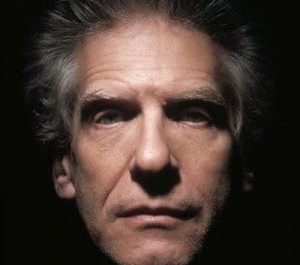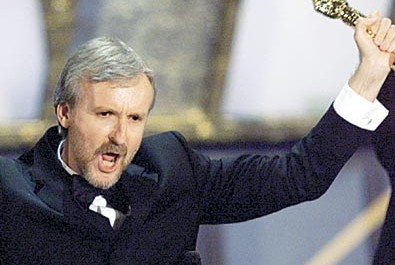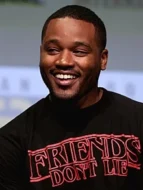Send Entries To: directorschairlamb@gmail.com
Deadline: 29th October
Hello everyone, it’s time to announce the next featured director for Director’s Chair and, for Halloween, I’ve decided to feature the king of body horror, David Cronenberg.
After making some short films and arthouses films in the early 1970s, Cronenberg went into partnership with producer Ivan Reitman, who helped give Cronenberg the funding for his third film, Shivers. When it was released, it was the most profitable Canadian film up to that point, but its content resulted in it being debated in Canadian parliament. Cronenberg’s work after Shivers, Rabid, did face some funding issues from the Canadian Film Development Corporation, again because of its content, but the profitability of Shivers meant that they couldn’t deny Cronenberg funding, with the result being another highly profitable film.
Cronenberg shifted away from horror for his next film, Fast Company, which holds a place of affection for Cronenberg due to his fascination with cars, but he returned to horror with his next two films, The Brood and Scanners, which earned Cronenberg more support and got him more international recognition.
His next film, Videodrome, became the first of his works to gain the backing of a major Hollywood studio, after he was one of the directors offered Return of the Jedi but turned it down. The film was well received on release and is now considered to be one of Cronenberg’s best films, but upon release it was a box office bomb.
Cronenberg was next hired to direct an adaptation of Stephen King’s The Dead Zone, which is one of the more commercially successful films that Cronenberg has made, and one of the adaptations of his work that Stephen King has spoken highly of, with it being another critical success.
Cronenberg’s follow up ended up being the biggest commercial success in his career, the remake of The Fly. Originally, Cronenberg was not going to direct it, as he was busy with Total Recall, but he ended up leaving that film, signing on to direct The Fly, if he could also rewrite the script (although he insisted on original writer Charles Edward Pogue being credited. The film was a massive critical and commercial success, with some critics, notably Gene Siskel, feeling that lead actor Jeff Goldblum should have been nominated for Best Actor at the Oscars, with the film ultimately winning the Best Make-Up award. Whilst a sequel was made without Cronenberg’s involvement, he did revisit the film in subsequent years, thinking of making a pseudo-sequel, which ended up not going anywhere and directing an opera adaptation of the film.
His next film, Dead Ringers, was another critical success, with Cronenberg being thanked by Jeremy Irons when he won the Oscar for Reversal of Fortune, with Cronenberg then directing an adaptation of Naked Lunch. After acknowledging that a straight adaptation would be impossible, he made more of a spiritual adaptation, combining elements of other works of William S Burroughs and Burroughs life into the film. It resulted in a more mixed reception, but it now has a cult following.
He then made a move into romantic drama with M Butterfly, which received more negative reviews, before making one of his more controversial films, Crash. When it was released, it was the subject of public outrage in the UK, resulting in it being banned by Westminster Council after a campaign by the Daily Express and the Evening Standard. It did though win a Special Jury Prize at the 1996 Cannes Film Festival, with the story going that it came close to winning the Palme d’Or, but jury president Francis Ford Coppola was against it (although in recent years this kind of film has been more accepted, as seen with Titane winning the Palme d’Or in 2021).
His next two films, eXistenZ and Spider, received critical acclaim as well, before Cronenberg made one of the most acclaimed films of his career, A History of Violence. The film was nominated for Best Adapted Screenplay and Best Supporting Actor at the Oscars and is included in the BBC’s list of best films of the 21st Century in 2016. It also marked the start of a rewarding working relationship between Cronenberg and Viggo Mortensen, who he’d work with again on his follow ups, Eastern Promises and A Dangerous Method, with Mortensen being nominated for Best Actor at the Oscars for Eastern Promises, which also won the People’s Choice Award at the 2007 Toronto International Film Festival.
After these, Cronenberg returned to writing as well as directing with Cosmopolis, which received a fairly mixed response. Cronenberg followed this up with Maps to the Stars, which took several years to get financed, being released in 2014. It again received a mixed response, but the performances, particularly from Julianne Moore, were well received, with Moore winning Best Actress at the 2014 Cannes Film Festival and being nominated for the Golden Globe for Best Actress – Musical or Comedy.
It ended up being 8 years before Cronenberg next directed a film though (although he acted in works such as Alias Grace and Star Trek: Discovery in the interim, after previously acting in works like Clive Barker’s Nightbreed). He had trouble finding financing for his films, before reuniting with Viggo Mortensen on Crimes of the Future (not to be confused for a film of the same name he made at the start of his career), with it being his return to body horror. The film received mostly positive reviews and Cronenberg is now in pre-production of his next film, The Shrouds.
The legacy of body horror from Cronenberg has also been carried by his son Brandon, with his works Antiviral and Possessor, whilst his daughter Caitlin, is a highly acclaimed photographer in Canada.
As a reminder, the films of Cronenberg’s you can cover are listed below.
- Stereo
- Crimes of the Future (1970)
- Shivers
- Rabid
- Fast Company
- The Brood
- Scanners
- Videodrome
- The Dead Zone
- The Fly
- Dead Ringers
- Naked Lunch
- M. Butterfly
- Crash
- eXistenZ
- Spider
- A History of Violence
- Eastern Promises
- A Dangerous Method
- Cosmopolis
- Maps to the Stars
- Crimes of the Future (2022)
I look forward to seeing what you send me.





Thank you for sharing an amazing post.
Mairaj Ahmed Mods